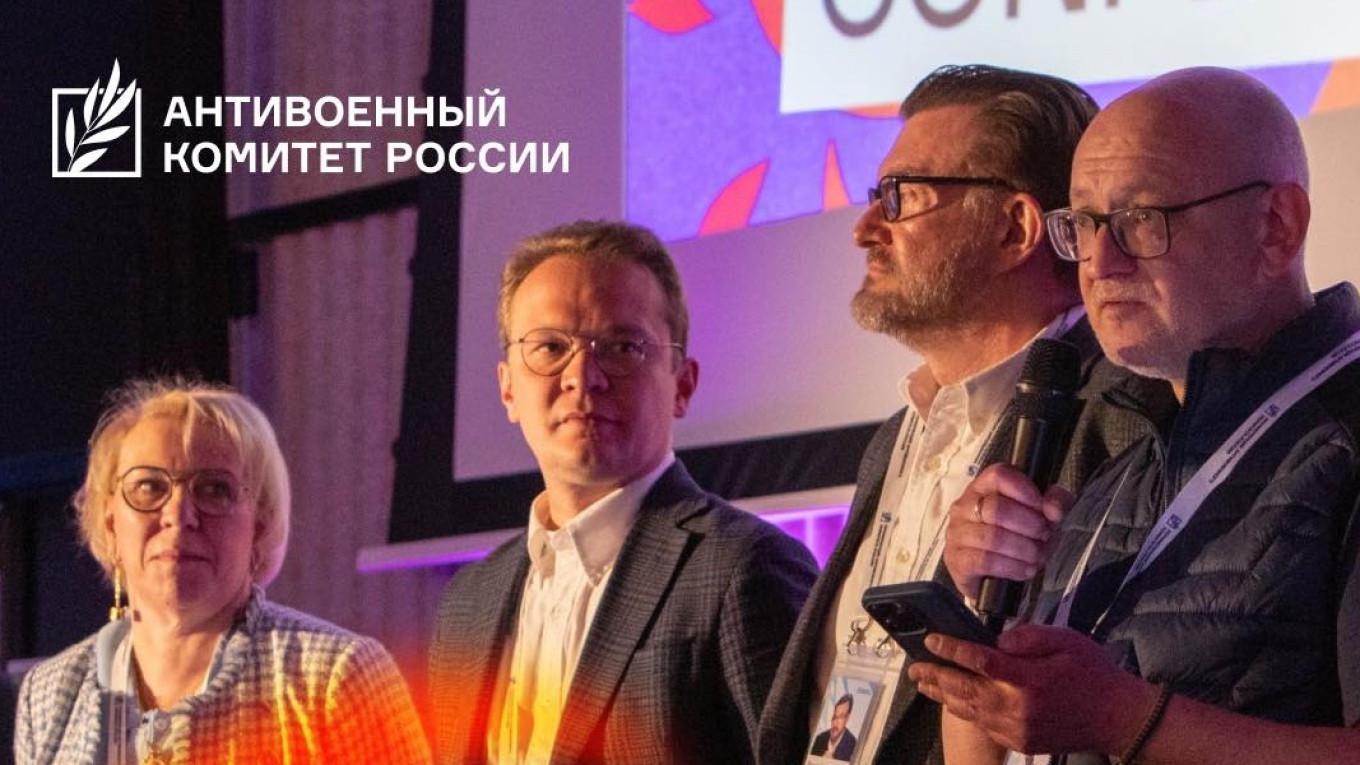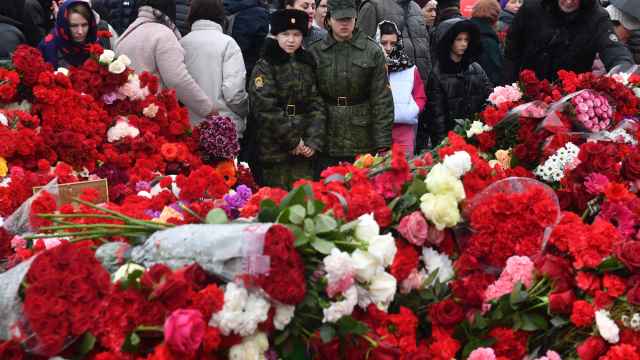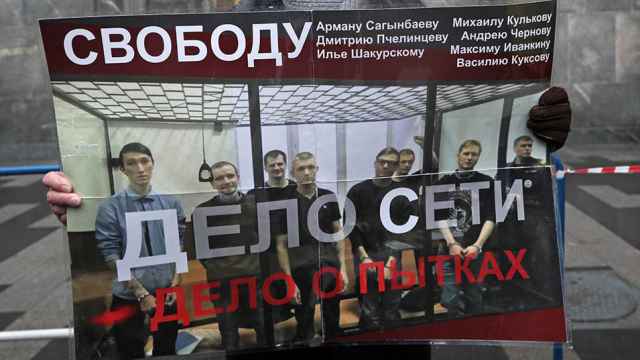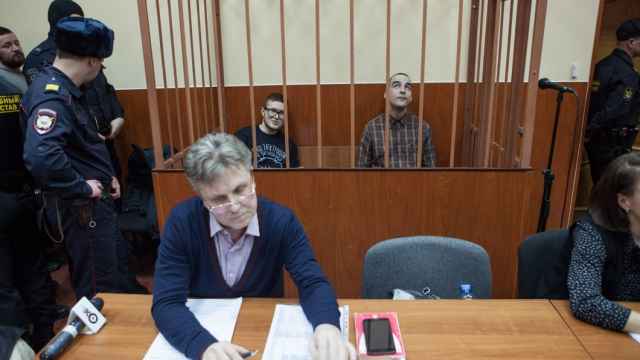The Anti-War Committee of Russia and the war itself exist in entirely separate worlds. You cannot reach tens of millions of Russian citizens with the letter Z stamped on their hearts from abroad. What a pointless move!
It was absurd for the FSB to declare the Anti-War Committee of Russia a terrorist organization. A terrorist group, one would think, should be made up of people who are actually dangerous. The members of the Committee are anything but. They are intelligent, educated, kind, courageous, honest, patriotic, respected and accomplished — but not dangerous.
Mikhail Khodorkovsky, Boris Zimin, Yevgeny Chichvarkin, Ekaterina Schulmann, Viktor Shenderovich, Artur Smolyaninov, Elena Lukyanova are two dozen of the most decent people you could name. I know many of them personally. Some, I even count as friends. The FSB suspects them of wanting to overthrow the ruling regime — and I suppose they do harbor that wish. But they have not the slightest chance of succeeding.
They know how to build successful businesses, write thoughtful articles and books, and deliver brilliant lectures. But overthrowing regimes is not part of their skill set.
Take, for example, the widely admired Ekaterina Schulmann. She has repeatedly said that when, for whatever reason, Russia’s war and dictatorship finally end, she stands ready to return to our self-destructed country and help rebuild it.
But how could she help — by teaching students, by advising the government?
She already taught at the public administration department of the Presidential Academy of National Economy and Public Administration. Her students gratefully absorbed her lessons about reason, kindness, and integrity, graduated, joined the civil service — and then proceeded to do exactly the things she told them not to do. Sowing the reasonable, the kind, and the eternal simply doesn’t work in Russia.
So what does work? I don’t know. But we should at least admit that the reasonable, the kind, and the eternal have failed.
Schulmann once sat on the Presidential Council for Human Rights, where, in the words of our great poet Alexander Pushkin, she “pleaded mercy for the fallen.” But after hearing her pleas, President Vladimir Putin — also a self-declared admirer of Pushkin, for whatever that’s worth — crushed those same fallen people with redoubled cruelty. In his worldview, “the weak are to be beaten,” not helped, as Schulmann believes.
The immediate pretext for the FSB’s new “terrorist” label seems to have been the creation of a committee under the Parliamentary Assembly of the Council of Europe (PACE), where European parliamentarians plan to speak on the record with Russian opposition members in exile. Some even call these exiles the “Russian delegation to PACE” — which must sting in the Kremlin, since its own official delegation was expelled unanimously.
An opposition presence at PACE may be a useful political instrument. But there are places where even the best instruments simply don’t work. A bicycle pump doesn’t function in space — there’s no air to pump. A compass is useless at the North or South Pole.
Perhaps it’s time to admit that even the most democratic institutions of parliamentarianism do not extend to Russia. We have been trying for more than a century, and nothing has ever worked.
Some argue that if the FSB has branded the Anti-War Committee a terrorist organization, then it must genuinely see danger in its work — and that therefore the Committee’s activity is valuable for building a “Beautiful Russia of the Future.”
But, following Occam’s razor, I’d say the simpler explanation suffices: the FSB just enjoys being malicious — and so it was. Why search for a complex motive when the petty, obvious one explains everything?
Should we give up? Stop resisting? Submit? That would be reasonable. But we don’t know how to do that.
Could we invent some clever social technology to reach tens of millions of people waving pro-war flags — all those prison guards, police officers, soldiers, bureaucrats, and factory workers with their families?
We don’t have the cynicism for that.
What we can do is treat and rehabilitate them after the state chews them up and spits them out — that, we know how to do. But we cannot truly reach the ones who remain and are content.
Believers have it easier: they can pray and wait for a miracle.
A Message from The Moscow Times:
Dear readers,
We are facing unprecedented challenges. Russia's Prosecutor General's Office has designated The Moscow Times as an "undesirable" organization, criminalizing our work and putting our staff at risk of prosecution. This follows our earlier unjust labeling as a "foreign agent."
These actions are direct attempts to silence independent journalism in Russia. The authorities claim our work "discredits the decisions of the Russian leadership." We see things differently: we strive to provide accurate, unbiased reporting on Russia.
We, the journalists of The Moscow Times, refuse to be silenced. But to continue our work, we need your help.
Your support, no matter how small, makes a world of difference. If you can, please support us monthly starting from just $2. It's quick to set up, and every contribution makes a significant impact.
By supporting The Moscow Times, you're defending open, independent journalism in the face of repression. Thank you for standing with us.
Remind me later.






